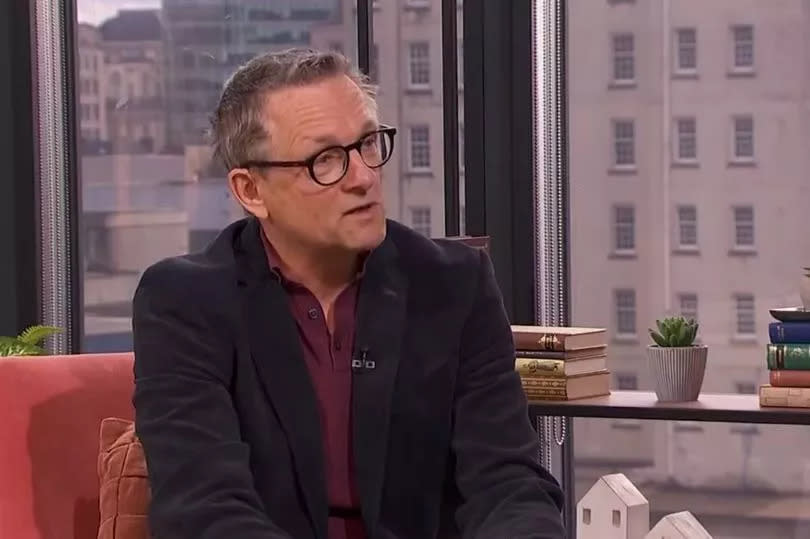Dr Michael Mosley diet lost 1st in two months - and cured IBS

Healthy eating expert Dr Michael Mosley has spoken about a diet which saw a person suffering from severe irritable bowel syndrome (IBS) lose a stone in two months and had her symptoms improve. The diet guru behind the 5:2 and Fast 800 eating plans explained that cutting out certain carbohydrates could make a huge difference.
The foods in this group are called FODMAPs - which are carbs the stomach struggles to absorb - and includes fermentable oligosaccharides, disaccharides, monosaccharides and polyols. In layman’s terms these are foods like dairy products, such as milk, cheese, yoghurt and ice cream, wheat-based foods, such as bread, cereal, biscuits and pasta, beans and lentils, vegetables, such as artichokes, asparagus, onions and garlic and fruits, such as apples, cherries, pears and peaches.
Dr Mosley said in his Daily Mail column: “FODMAPs in these foods can be poorly absorbed, so reach the large bowel largely undigested, where they’re fermented by gut bacteria which produce gas and cause symptoms such as bloating.
“The low-FODMAP diet was developed at Monash University in Melbourne, Australia, around 15 years ago, and has been shown to improve IBS symptoms and help patients identify their triggers (because it is highly restrictive, it’s not meant to be used long-term and should be supervised by a medical professional).”
He added that when he made the recent TV series on Channel 4, Secrets Of Your Big Shop they helped 34-year-old Natalie Sharpe, who suffered from terrible bloating and pain caused by IBS. He said: “With the help of a nutritionist we devised a new eating plan for her, cutting out garlic and onions, along with most foods containing wheat or dairy, and swapping to a diet with rainbow veg — e.g. peppers, carrots, courgettes and broccoli — which are fine on a low-FODMAP diet — plus, fish and chicken.
“Before Natalie started on her new diet, we tested her poo to see what was happening to her gut microbiome — there were hardly any good bacteria, particularly those that play a role in calming down inflammation in the gut.”
Dr Mosley said that after a couple of months of her new diet, Natalie had lost 6kg (just under 1st) and 3in from around her waistline. He added: “Her gut microbiome flourished and her symptoms had all improved. As she said to me at the time, ‘I just feel really wow to be honest’. I spoke to Natalie this week and she told me she’s now eating some wheat and dairy, but not as much as before. She’s lost more weight and still feels fantastic.
“If you have severe IBS then do talk to your doctor before starting a new diet, and you might want to pay to see a dietitian. There’s plenty of information about low-FODMAP or low-carb diets on the internet (though it is meant to be a temporary measure, while you figure out which foods trigger your symptoms). My book, the Clever Guts Diet, is all about this, too.”

 Yahoo News
Yahoo News 
